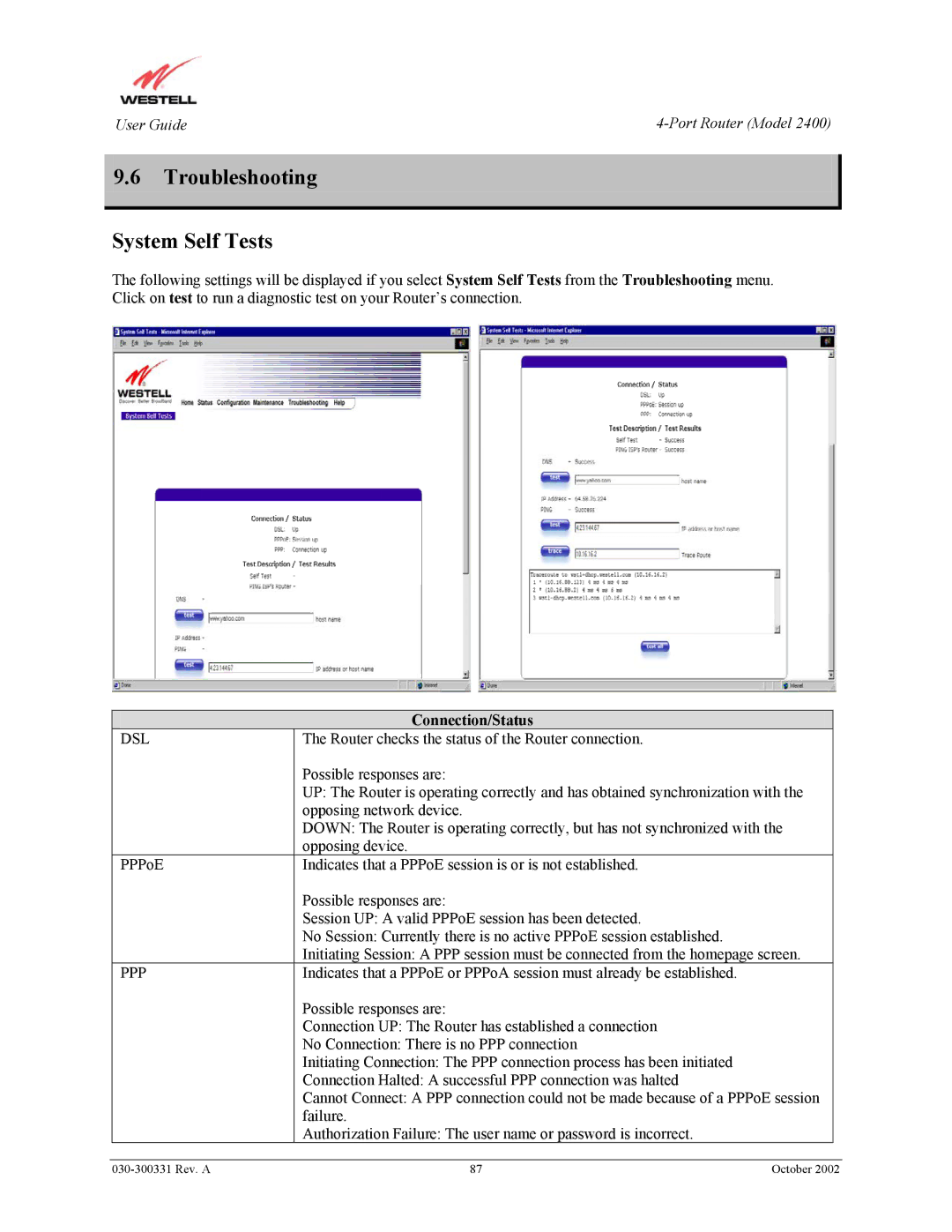
User Guide |
9.6Troubleshooting
System Self Tests
The following settings will be displayed if you select System Self Tests from the Troubleshooting menu. Click on test to run a diagnostic test on your Router’s connection.
|
| Connection/Status |
|
|
| DSL | The Router checks the status of the Router connection. |
|
|
|
| Possible responses are: |
|
|
|
| UP: The Router is operating correctly and has obtained synchronization with the |
| |
|
| opposing network device. |
|
|
|
| DOWN: The Router is operating correctly, but has not synchronized with the |
| |
|
| opposing device. |
|
|
| PPPoE | Indicates that a PPPoE session is or is not established. |
|
|
|
| Possible responses are: |
|
|
|
| Session UP: A valid PPPoE session has been detected. |
|
|
|
| No Session: Currently there is no active PPPoE session established. |
|
|
|
| Initiating Session: A PPP session must be connected from the homepage screen. |
| |
| PPP | Indicates that a PPPoE or PPPoA session must already be established. |
|
|
|
| Possible responses are: |
|
|
|
| Connection UP: The Router has established a connection |
|
|
|
| No Connection: There is no PPP connection |
|
|
|
| Initiating Connection: The PPP connection process has been initiated |
|
|
|
| Connection Halted: A successful PPP connection was halted |
|
|
|
| Cannot Connect: A PPP connection could not be made because of a PPPoE session |
| |
|
| failure. |
|
|
|
| Authorization Failure: The user name or password is incorrect. |
|
|
|
|
|
|
|
|
| 87 | October 2002 | |
